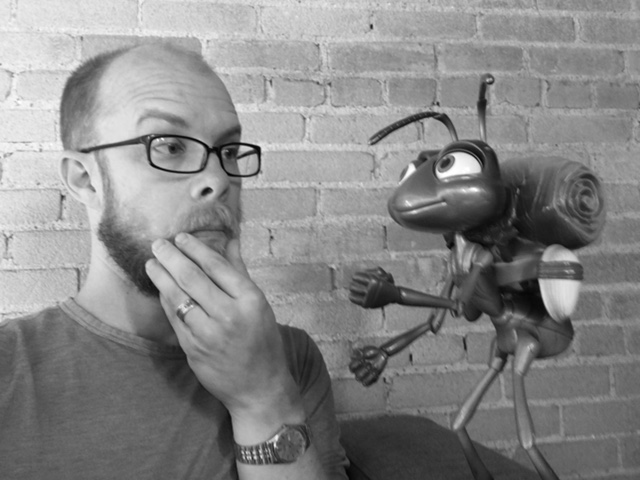6 Tips from Bug's Life on Problem-solving
So before I started typing this post, I reached out to a friend who is an innovation specialist. I asked, “Is there an industry term for working around known issues instead of just stopping at them?” Her response, “Yeah. Chickenshit.”
Did you ever see the movie A Bug’s Life by Pixar? It came out in 1998, so it may need to be dusted off your shelf. There is a great scene where the ants are carrying seeds to the ant hill and a leaf falls in their path. I can’t do it justice. Here. Watch.
In the game of entrepreneurship there are more roadblocks, more leafs on the trail, then there are wide open roads. You need to increase your ability to adjust, shift, jump, avoid, and tackle obstacles in order to succeed.
Here are 6 tips from Bug’s Life to help you succeed when the leaf falls (facing a problem).
1. Do not panic.
As soon as the leaf falls, the first ant yells, “No, no, no. Oh, no. Oh, no. I'm lost! Where's the line?” When you panic you tend to overgeneralize a situation and make sweeping conclusions. Expect leaves to fall. If nothing is getting in the way of you reaching your dreams or accomplishing your goals then you probably aren’t in motion. When the obstacles arises say, “I was expecting this.” Definitely don’t do what the ants did and yell, “- Help! - We'll be stuck here forever!”
2. Few things are forever.
Other than death, few things are forever and none of us are really even sure how death works. Again, be cautious to overdramatize the outcome to an extreme. Chances are good that you won’t be stuck there forever. Know this. I sometimes hear, “This will never work now” or “This will never happen now.” Really? Never? You can read the future? If so, maybe we should work on that project instead of this one. I think knowing the future could pay nice returns.
I was recently watching Dan Gilbert’s Ted Talk, The surprising science of happiness. In it he shares, “From field studies to laboratory studies, we see that winning or losing an election, gaining or losing a romantic partner, getting or not getting a promotion, passing or not passing a college test, on and on, have far less impact, less intensity and much less duration than people expect them to have. This almost floors me -- a recent study showing how major life traumas affect people suggests that if it happened over three months ago, with only a few exceptions, it has no impact whatsoever on your happiness.”
See, few things are forever.
3. Consult a professional
Why not find someone who has run into the same exact scenario and ask how they solved it? Learn from the open-source approach to life. In this environment, one person learns so the others don’t have to repeat the same mistake. Each individuals’ learning level becomes a new starting point for everyone else. Why learn to pull your tooth when you can consult someone who has done it before? You begin at the point of their learning. If your project is held up because of finances, manufacturing or legal then hurry up and find someone who has already overcome this and learn from them.
4. Stay calm.
If panicking is what you need to stop, then staying calm is what you need to start. Again, in a panic you might say, “Do not panic, do not panic.” But what do you replace that with? Staying calm. When you panic, your brain goes into fight or flight response to stay alive. Fighting or fleeing aren’t always the 2 best options in business. Understand that your brain needs new information to calm your amygdala and wash out your stress chemicals. Learn a yoga breathing technique, go to a mental “happy place”, or do what I do, and what the ant leader did, “Oh, nonsense. This is nothing compared to the twig of '93.” I put the situation in perspective of my overall life.
5. Try another path
Be open and willing to trying another path to reach your goals. Sometimes a path becomes blocked permanently or disappears, so find or create a new one. Yes this does mean you might have to bushwhack your path, but at least you are on the move and have a chance of solving the problem. If possible, rejoin the original path and keep on moving.
6. Focus
“Watch my eyes. Don't look away.” Says the leader ant to the line of ants. This is good advice. When you are finding a work around focus you should focus on what is working rather than what isn’t. If you have the advice of a professional then try focusing on the advice and see what happens.
So what is the theme we learn from all of this: Learn to go around the leaf.
